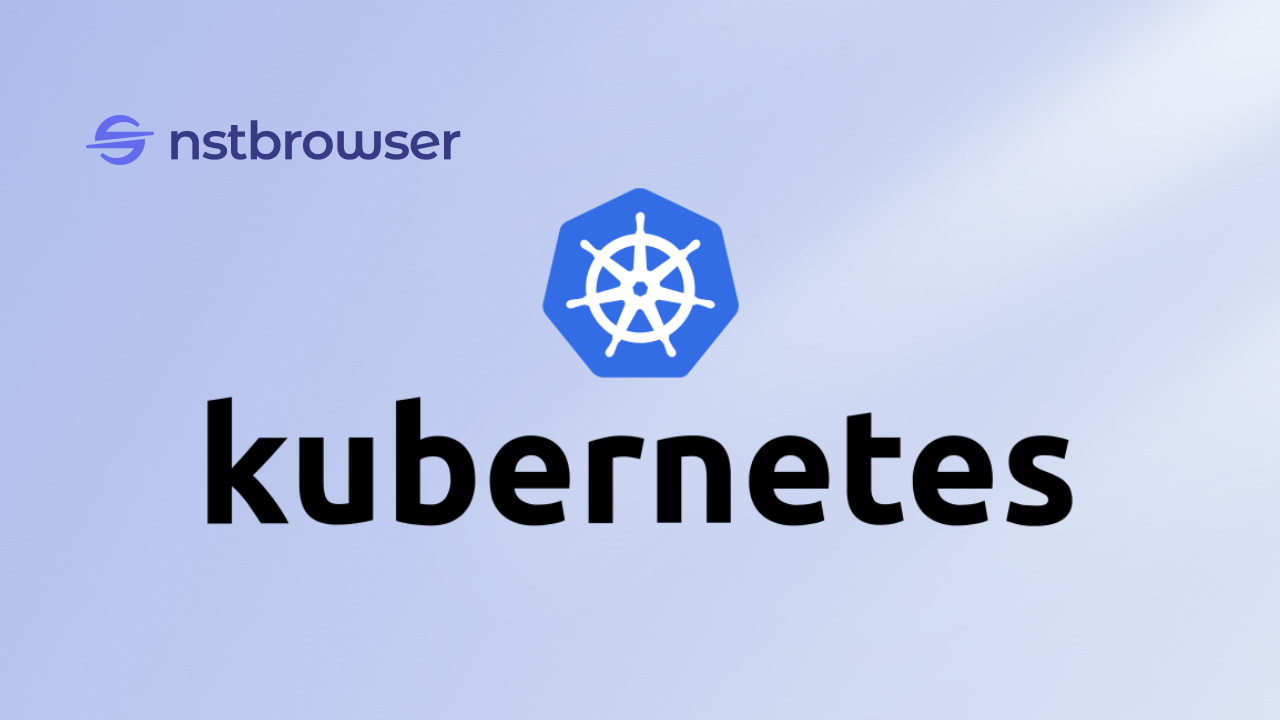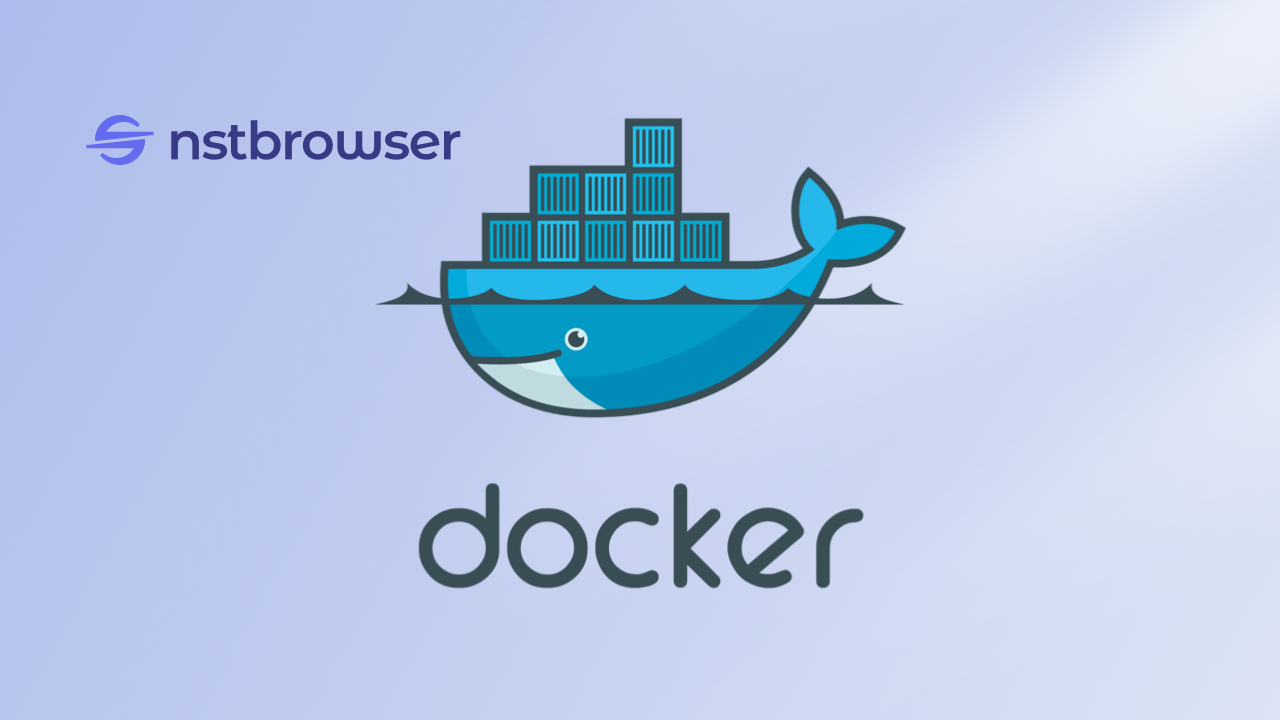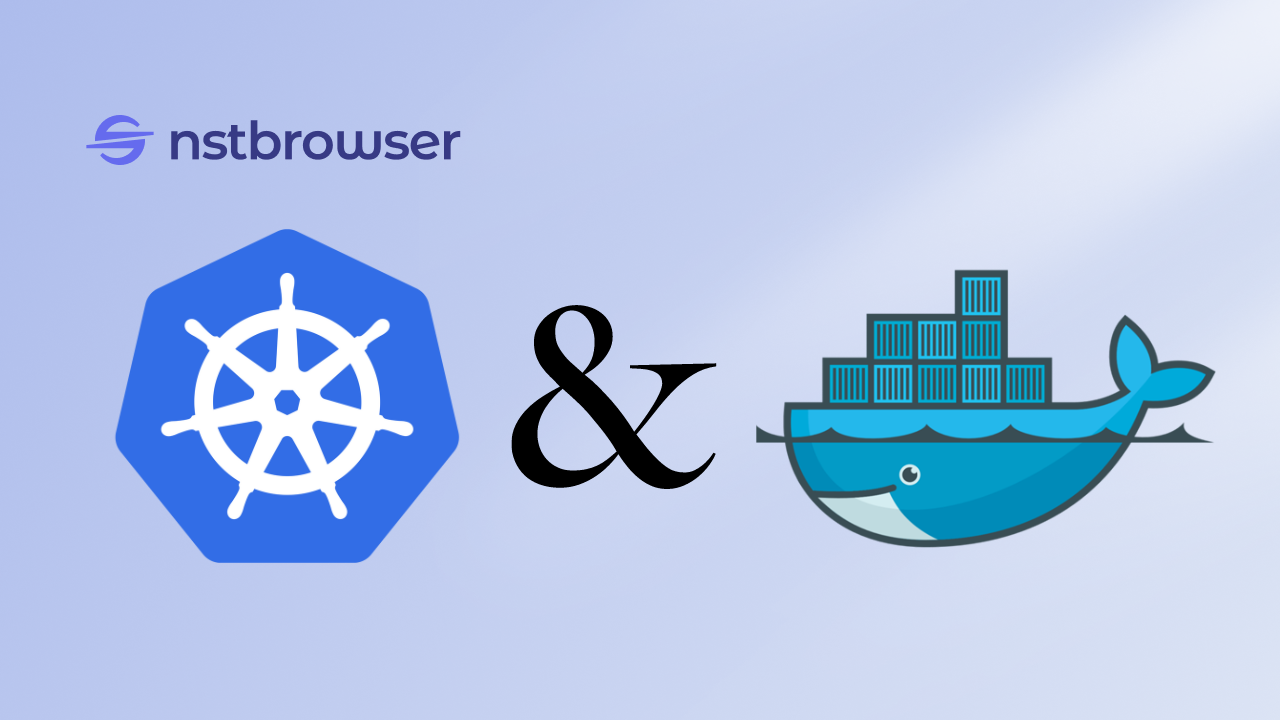Browserless
Kubernetes vs Docker: Which One Is the Best for You?
What are the differences between Kubernetes and Docker? Could you use them simultaneously? This blog is all about Kubernetes and Docker. Figure them out now!
Aug 27, 2024Robin Brown
Kubernetes:

What is Kubernetes?
As a developer, you work with containerized applications every day, which are often complex and variable. Just when you're getting busy, Kubernetes (also known as K8s) has quietly made its debut, offering you a new way to manage them.
This open-source container orchestration platform serves as a calm and efficient commander, automating scaling, deployment, and management tasks to free you from tedious details.
What problems does Kubernetes solve for developers? The answer is obvious!
It allows you to easily manage complex containerized applications and services, no matter how diverse and complex the infrastructure of those applications is.
Of course, Kubernetes is not a full-featured PaaS (Platform as a Service) and there are still many factors to consider when building and managing a Kubernetes cluster.
This is precisely why many customers choose to use a managed Kubernetes service from a cloud provider, as it allows them to sidestep the complexity of management and focus more on business innovation.
Do you have any wonderful ideas and doubts about web scraping and Browserless?
Let's see what other developers are sharing on Discord and Telegram!
What are the benefits of Kubernetes?
Kubernetes is a sophisticated tool with a range of impressive features.
1. Automated Operations
Kubernetes uses a powerful API and kubectl to automate container management, ensuring applications run as specified with minimal manual intervention.
2. Infrastructure Abstraction
It abstracts underlying infrastructure, allowing developers to focus on application code rather than managing compute, network, or storage resources.
3. Service Health Monitoring
Kubernetes monitors the running environment and compares it to the desired state. It performs automatic health checks on services and restarts failed or stopped containers. Kubernetes makes services available only when they are running and ready.
4. Scalability
Kubernetes allows users to scale applications horizontally and vertically based on resource utilization and user demand. In other words, elasticity is a core feature of a Kubernetes cluster.
5. Availability
Kubernetes enhances availability by using multiple control plane nodes, maintaining cluster operation even if one node fails.
6. Multi-cloud capabilities
Kubernetes has multi-cloud capabilities. Due to its portability, it can host workloads on a single cloud or distribute workloads across multiple clouds. Also, it can extend its environment from one cloud to another.
7. Flexibility
Kubernetes is very flexible, which means it can work with almost any container runtime. A container runtime is a software component that helps run containers on a host operating system. Also, it can work with almost any type of underlying infrastructure, whether it is a public cloud, private cloud, or an on-premises server.
Docker:

What is Docker?
I’m sure you’re no stranger to the complexity of containerized applications, which often feels like juggling a lot of complexity and variety. Docker is your new best friend in the world of containerization, and it brings a refreshing simplicity to the whole scene.
Think of Docker as the Swiss Army Knife of containerization. It uses a client-server architecture and lets you easily manage containers through a powerful API. It’s easy to make a Dockerfile to package your application into a container image, and building those images is as simple as running a few commands.
While you can build containers without Docker, building containers with this platform is like having a cheat code—it simplifies everything. Besides, Docker ensures that your containers are portable and ready to use, no matter where you deploy them.
What are the benefits of Docker?
1. Simplify development and deployment
Packaging an application and all its dependencies into a container ensures that the application can run consistently in different environments, avoiding dependency issues.
2. Improve consistency
The container contains all the components needed to run the application, reducing the "can run on my machine" problem.
3. Enhance portability
Containers can run on any platform that supports Docker, whether it is a local development machine, a test server, or a cloud service, simplifying the migration and deployment of applications.
4. Accelerate the development process
Supports rapid creation, startup, and destruction of containers, helping developers to quickly iterate and test applications and shorten the development cycle.
5. Efficient resource utilization
Containers share the host operating system kernel, occupying fewer resources than virtual machines, improving resource utilization efficiency.
6. Flexible scalability
You can easily load balance between multiple containers, support dynamic expansion of applications, and meet different load requirements.
7. Easy to manage and orchestrate
Combined with tools such as Docker Compose and Kubernetes, you can easily manage and orchestrate multiple containers and simplify the management of complex applications.
Kubernetes vs Docker: Overall Comparison
| Features | Kubernetes | Docker |
|---|---|---|
| Functional Positioning | Container orchestration and management | Creation, management, and operation of containers |
| Containerization | Run and manage containers | Create and manage containers |
| Core Functions |
|
|
| Main Uses |
|
|
| Resource Management |
|
|
| Network Management |
|
|
| Storage Management | Supports persistent volumes and storage classes | Use data volumes and bind mounts to persist data |
| Extensibility |
|
Run multiple containers on a single host |
| Orchestration And Scheduling |
|
Does not support native container orchestration and scheduling |
| Fault Recovery |
|
Container crashes require manual restart or redeployment |
| Supported Tools |
|
Docker compose (for managing multi-container applications) |
| Deployment Methods |
|
Local development environment or simple container deployment |
Can Kubernetes Be Used with Docker?
Yes!

By combining Kubernetes and Docker, developers and operators get a powerful framework to deploy, maintain, and scale containerized applications. Make the system more resilient and scalable.
- Docker simplifies the creation of containers and their dependencies
- Kubernetes coordinates the deployment and runtime behavior of these containers
When Kubernetes is used in conjunction with Docker, Kubernetes can act as an orchestrator for Docker containers. That is, Kubernetes can manage and automate the deployment, scaling, and operation of Docker containers.
1. Automated container management
Kubernetes can automatically schedule and manage Docker containers, ensuring that containers run efficiently in the cluster according to demand, reducing the burden of manual management.
2. Automatic expansion and load balancing
Kubernetes automatically increases or decreases the number of Docker containers according to the workload requirements of the application, and load balances the traffic between containers to ensure high availability and performance of the application.
3. Container failure recovery
Kubernetes continuously monitors the health of containers and automatically replaces failed containers to ensure the stability and reliability of applications.
4. Flexible storage management
Kubernetes can automatically mount local storage, cloud storage, or network storage to Docker containers, making storage management more flexible and easy to operate.
5. Simplified deployment and update
Kubernetes provides a set of tools to simplify the deployment and update process of applications, support rolling back changes, and ensure application continuity during updates.
6. Consistency and portability
By combining Docker and Kubernetes, the differences between development and production environments are minimized, and applications can run on any platform supported by Kubernetes, enhancing the portability of applications.
7. Service discovery and DNS management
Kubernetes provides unified DNS names and service discovery capabilities for container clusters, simplifying inter-service communication and network configuration.
Verdict: Kubernetes vs Docker
The decision between Kubernetes and Docker hinges on your unique use cases and needs:
- Docker offers superior containerization capabilities and is well-suited for local development, fast prototyping, and straightforward single-host deployment.
- Kubernetes, on the other hand, excels in complex multi-node production environments requiring advanced orchestration, scalability, and flexibility.
Using them together is also a wise decision!
More






